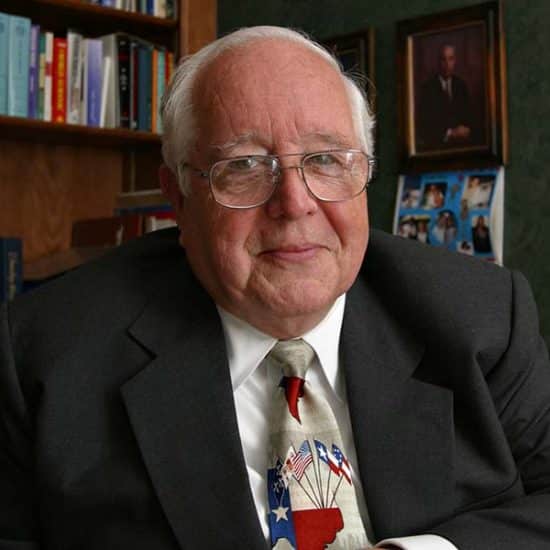By Vicki Brown
Word&Way Correspondent
JEFFERSON CITY — Windermere Baptist Conference Center acted legally when it changed its articles of incorporation, Cole County Circuit Court Judge Richard Callahan ruled in a 43-page order issued March 4.
The ruling was the latest action in litigation the Missouri Baptist Convention filed against five formerly related entities — Windermere, The Baptist Home, the Missouri Baptist Foundation, Missouri Baptist University and Word&Way — more than five years ago.
The convention plans to appeal, according to MBC lead attorney Michael Whitehead in an article posted on the Web site for the MBC news journal, The Pathway.
“We are very thankful for Judge Callahan’s decision,” Windermere president and chief executive officer Dan Bench said in a written statement on March 5. “After carefully considering the merits of the case, the judge made the decision we have always believed was right. We look forward to putting this unhappy event behind us and to have all the Baptists of Missouri rejoicing and serving together.”
The convention filed legal action against the five institutions on Aug. 13, 2002, in an effort to force them to rescind changes they had made in their corporate charters. The Home changed its articles of incorporation in 2000 to elect its own trustees. The other four took the same action in 2001.
The March 4 ruling centered on two main aspects of the convention’s contention — corporate membership and a contractual relationship with Windermere. The judge ruled the MBC is not a member of Windermere’s corporation and that no contract exists between the two entities.
Until August 2000, the convention governed Windermere through the MBC Executive Board. Messengers to the 1999 MBC annual meeting approved a reorganization plan that included incorporation of Windermere and Word&Way as separate entities. Drawn up in 2000, Windermere’s charter noted the new corporation would have no members.
The MBC has acknowledged that the original incorporation articles declare that Windermere has no members. But attorneys argued that because Windermere had granted the MBC permission to elect the center’s trustees, the action made Windermere a corporation with members, with the convention as its only member.
Under law, a person can participate in an election without becoming a corporate member. A corporation without members does not become a corporation with members because it grants limited rights to a third party, Judge Callahan ruled.
The first judge in the case, Thomas Brown, had ruled on the membership issue on the university’s behalf in 2003. Judge Brown lost his bid for reelection in 2006 and the case was assigned to Judge Callahan last year.
Windermere also had the right to change its charter without the convention’s approval. “The ‘rights and privileges’ given to the MBC and/or its messengers under Windermere’s Original Articles were not ‘fixed, unalterable, irrevocable’ rights, but were rights or privileges subject to amendment by Windermere,” the judge wrote.
He added that while the law protects independent rights, trustee election was not a right but merely a privilege Windermere’s original incorporating articles had granted. He also noted that as drafters of the original charter, the MBC could have clearly spelled out the rights to be granted.
The judge dismissed the idea that together Windermere’s articles of incorporation and the MBC’s governing documents — its constitution and bylaws, its business and financial plan, and the Executive Board’s articles of incorporation and bylaws — created a contract between the two entities. The charter only constitutes a contract between the center and the State of Missouri.
In its ruling, the court also noted that a covenant agreement did not exist because the agreement did not list obligations for both parties. The convention could change the agreement unilaterally simply by changing its governing documents, and it retained the right to terminate a covenant agreement at any time.
No mutual obligation existed because under the governing documents’ provisions, the MBC was not obligated to support the center and could withdraw any support it provided at any time. The convention withdrew Cooperative Program funds because of the charter changes.
Judge Callahan recognized control as an underlying issue. “Plaintiffs argue, without factual support, that the MBC only released control over the assets, operations and/or funds because it knew it would retain some degree of control; that it would make no sense for the MBC to enter into the arrangement unless the right of continued control was perpetual; and that the MBC believed it would retain some degree of control,” he wrote.
The court noted that any contract “depends on what is actually said and done…not upon understanding or supposition.”
Judge Callahan denied the convention’s request for a permanent injunction against Windermere to halt construction, to borrow funds, or to sell or encumber assets.
The court has 30 days in which to make any changes to the order or to withdraw it. The convention will have an additional 10 days in which to file an appeal.
Whitehead said the convention is disappointed that the Windermere case did not go before a jury. The MBC plans to ask the Missouri Court of Appeals for the Western District to offer a ruling rather than to return the case to the circuit court.
In 2005, appellate judges sent the case back to Cole County after the MBC appealed Judge Brown’s March 11 dismissal of the legal action against the university. Judge Brown had ruled the Executive Board and six individuals who filed the original lawsuit did not have the legal right to do so. The appeals court overruled the Cole County judge on the Executive Board’s standing and upheld Judge Brown’s decision regarding the six churches.
The Windermere case does not directly affect the other four institutions because the five are listed as individual defendants. Missouri law does not provide for the other four cases to be stopped or stayed unless a request is filed. All parties would have to agree to that request as well.
“Windermere Baptist Conference Center is very pleased with Judge Callahan’s well-reasoned…judgment ruling in favor of Windermere and against plaintiffs with respect to each and every claim and issue raised in the lawsuit,” the center’s lead attorney Jim Shoemake said in an e-mail statement.
“Windermere is confident that Judge Callahan’s judgment will be upheld by the court of appeals.”






